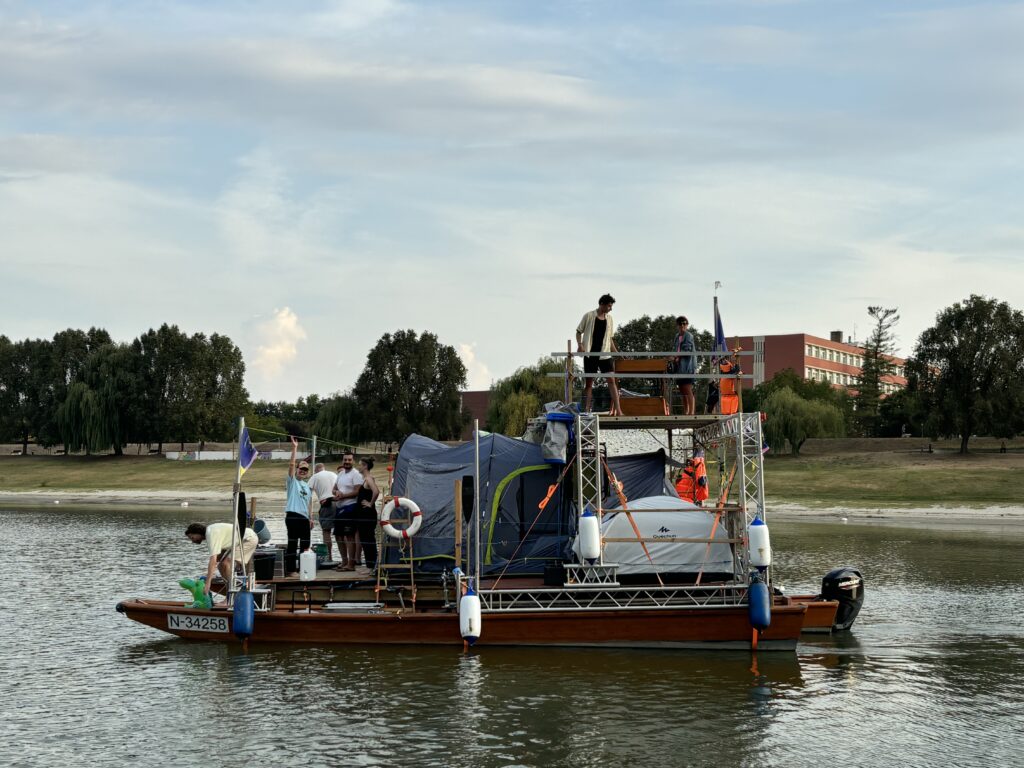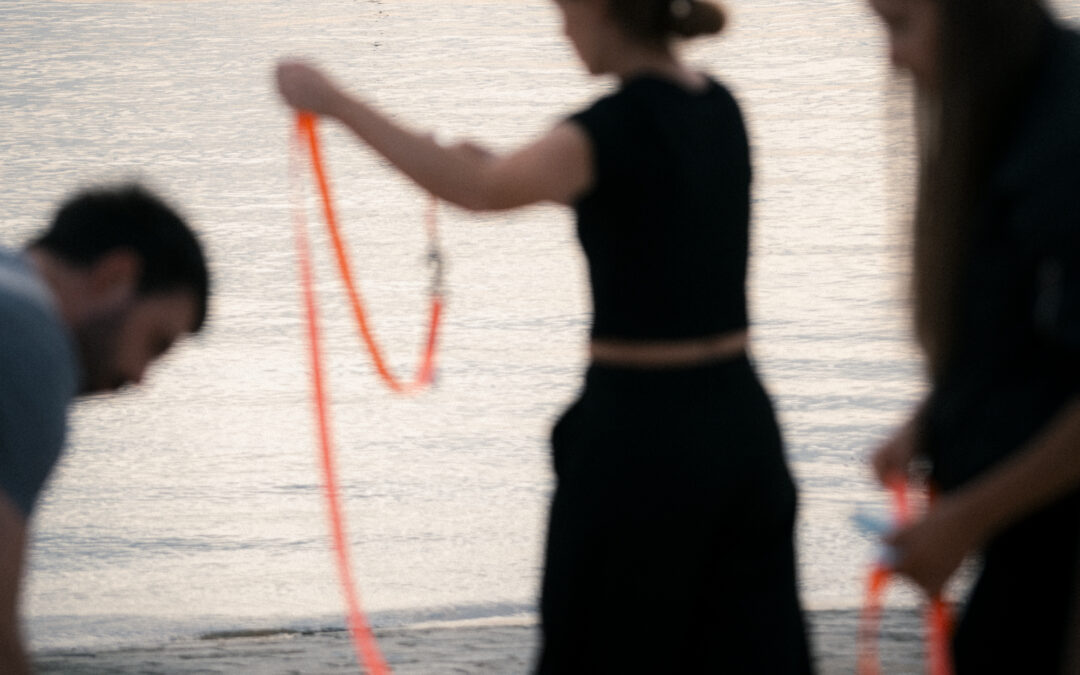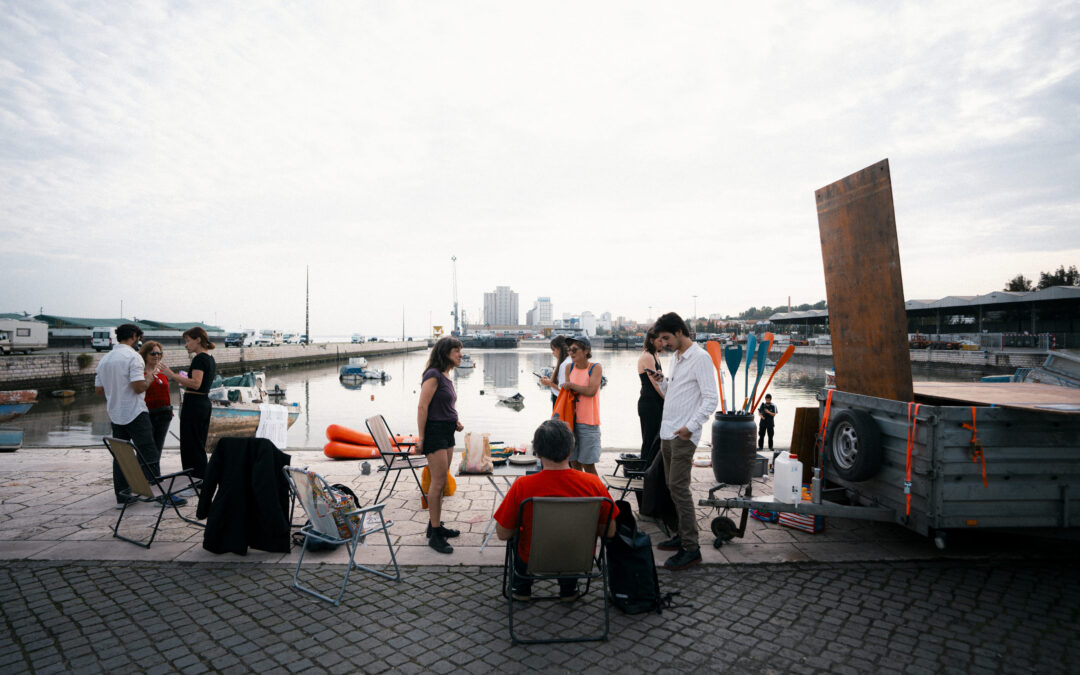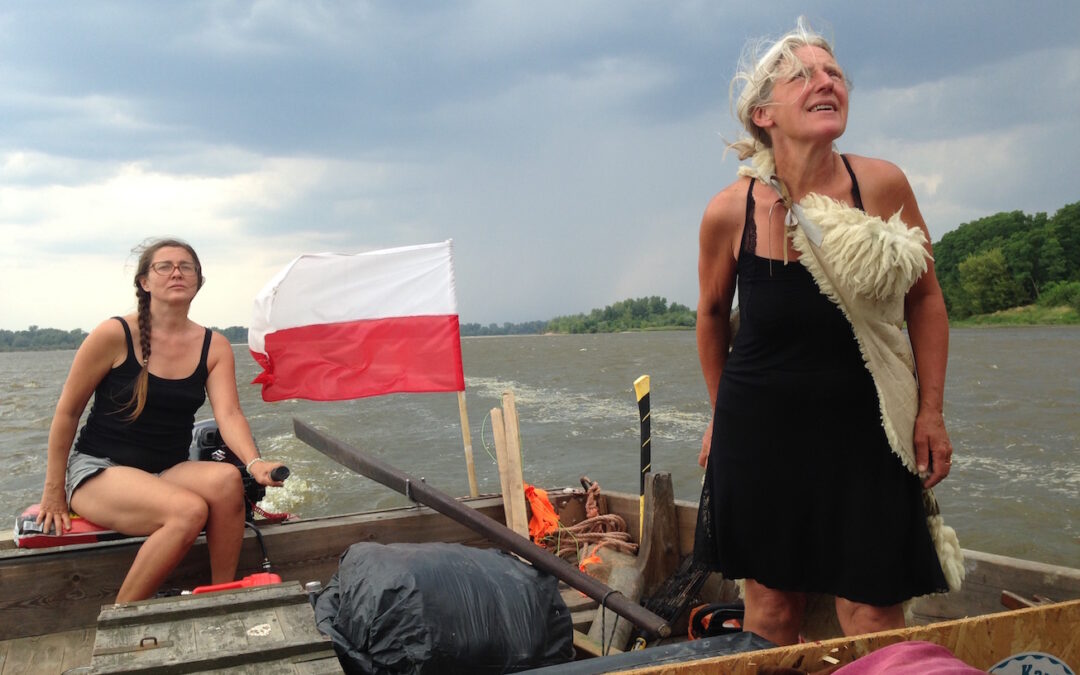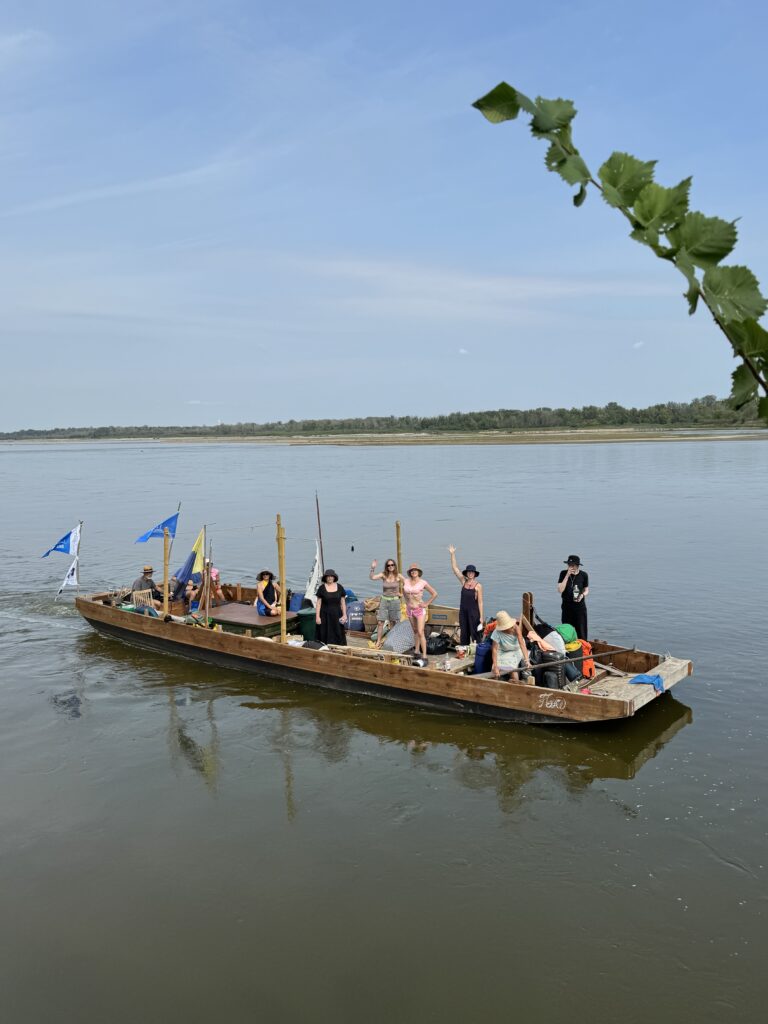
Photo by Witaj Hugo
There is a strong poetic in ‘departures’. Departures link with ‘orginations’ in the many senses of that word. ‘Points of departure’, for instance, suggest places (physical or not) from which people, things, trains of thought spring up, and start to move. Departures are the commencement of something. They are the moments in which a past (of necessity, desire, planning) meets a potential future (of objectives, destinations, goals). Something is about to begin….
This week saw two Liquid Becomings departures. After months of anticipation, preparation and first imagination, on August 27, we saw the departure of the MS Fusion, from Baja (southern Hungary). On board: a crew excited to discover and interact with the stories and histories of the Danube. A few days later, on 31 August, the boat FLOW left the banks of the Vistula in Warsaw, to engage once more in a ritual – already well established – between this vessel and the river. Only this time, the journey forms part of a larger context, and is woven into a wider ecosystem.
Departures as such are often overlooked. Many people tend to focus on the journey itself as the centerpiece of the altar. But it is worth pausing for a moment at the beauty and bittersweet potentials that characterize the very moments of departure, the official kickoff points of any story or travel.
Of course, while simple stories tend to follow the storylines of beginning, middle and end, in real life, most beginnings themselves embody ‘anteriors’. The background stories that push people into departure mode are manifold. The act of departing can spring from love, pain or tragedy, from restlessness, or the dire necessity to escape a situation or save one’s skin. It can stem from a strong aspiration to move yonder, towards something that you will not find if you are stuck in inertia. Social inequalities, different geographies, class are only some of the ‘anterior factors’ that can significantly impact how a story or journey will commence and under what cloud or stars people ‘depart’. Not every departure is a choice. But every departure implies a certain space of change.
To depart also frequently means to leave something behind: family, friends, a city, a culture. Departures force us – in however small a way – to let go of the familiar.
And that is something that humans tend to struggle with. Most people would not risk the unknown, if they did not have some sort of expectation for something better to emerge. Departures connote implicit dreams that in people’s minds surpass the challenges.
The fascination of each departure thus lies in the possible futures that they anticipate. They are a sort of metaphorical seed. Like seeds, departures do not come with absolute certainties, but with some justified hope. If you plant an apple seed, you aim to work to get an apple tree. You can do your best to support the tree to grow. But you cannot know beforehand the exact size and final shape of that tree. You cannot be sure if any of it will eventually materialize. But you act out of hope: watering the seedling, maintaining the soil accordingly and being committed to that invisible intention, planted in the ground. Indeed, much of the process will depend on conditions beyond your control.
It is in similar ways that departures invite acts of hope. The acts of hope, commitment and patience of planting a tree can teach us many lessons. The main one being that, besides not expecting pears when you planted apples, you can predict very little from what will come. So before enjoying the ride, give the departure moment the proper attention it deserves. Cherish the moment, as that very liminal present in which past and future collide, the one bringing you there, the other pushing you forward.
Dwell on that moment of departure for a second and feel it. For it may be in the departure that the dreams are actually most alive. And it might be that feeling that can guide you to sail on.
Text by Ana Paula Teixeira, agora team member, and Godelieve van Heteren, our board member
*This is the first text from ‘Notes from the Rivers’, a series of reflections from people that are taking part in, are connected to or are very sympathetic to the European Pavilion 2024: Liquid Becomings and the discussions being posed by the project. Each text expresses the personal ideas and positioning of the authors.

